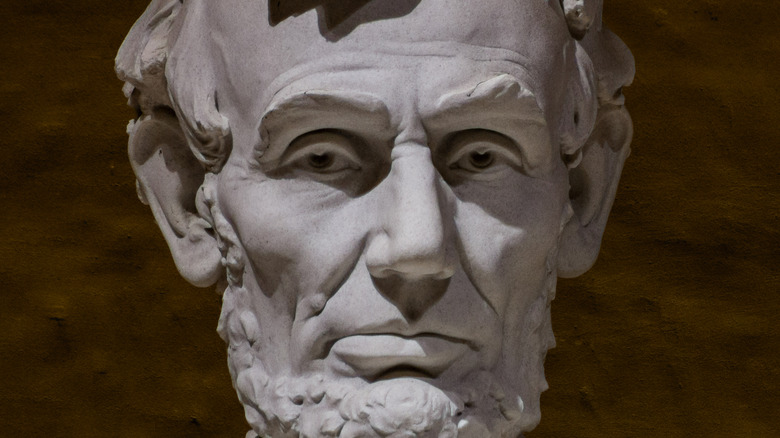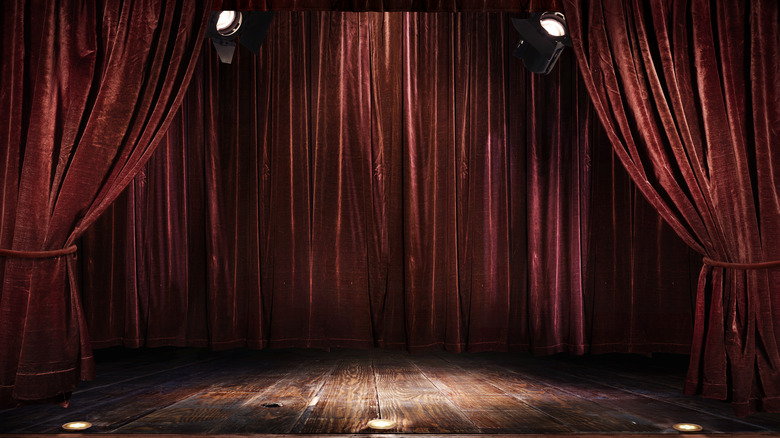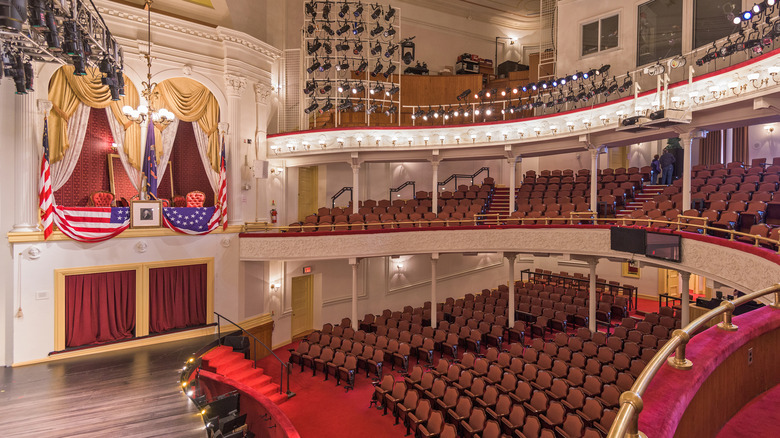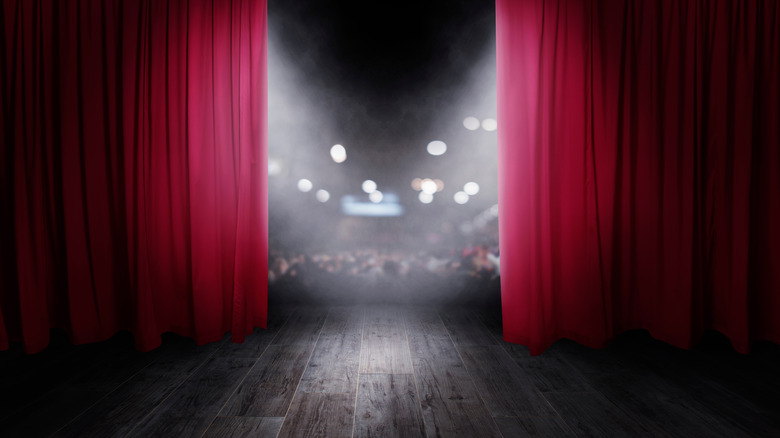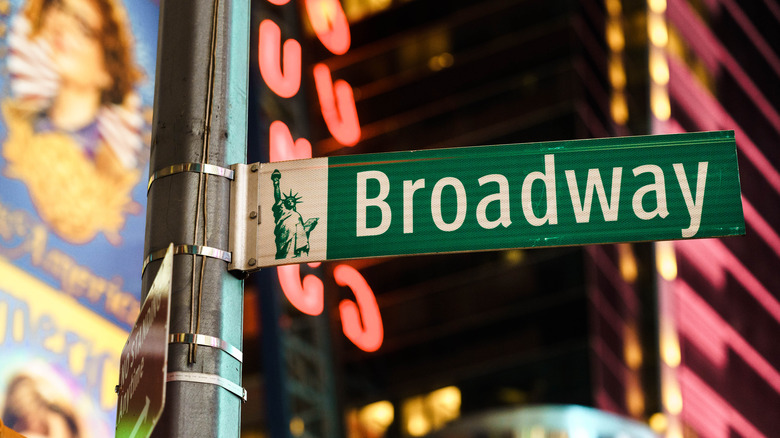What Was The Play Abraham Lincoln Was Watching When He Was Assassinated?
Abraham Lincoln was shot on the night of April 14, 1865, according to the Library of Congress, and succumbed to his wounds the next morning. The incident took place at Ford's Theatre in Washington, where Lincoln and his wife, Mary, were in attendance, along with their friends Major Henry Rathbone and his fiancée Clara Harris, according to the National Park Service. The assassin, John Wilkes Booth, was an actor who had performed at the theater in the past. After he fired the bullet, Booth, a Confederate sympathizer who was furious that the South had lost the Civil War (which had just wrapped up days prior), shouted "Sic semper tyrannis!" (Latin for "thus always to tyrants!") before jumping down from the box seat and onto the theater floor, breaking his ankle in the process.
The audience, not sure what had happened, chuckled nervously, thinking it was all part of the show. After all, it was a comedy they were watching – "Our American Cousin," a goofy comic farce that relied largely on puns, comical accents, and misunderstandings.
The context of Our American Cousin
Before deconstructing "Our American Cousin," it helps to understand the social and historical context in which it was written. After all, slapstick by The Three Stooges' slapstick still resonates with audiences nearly a century after it was first filmed, while a standup's topical material might not work two years later.
"Our American Cousin" was written in 1852 (per The Guardian) and produced in 1858 (according to Britannica), 40 or so years after the War of 1812 and less than a century after the Revolutionary War (this is important). The play relies on misunderstandings between a rural American character (in this case, from Vermont) and aristocratic, English counterparts. Misunderstandings based on culture and accent are played to comic effect, according to Vanity Fair. It was popular enough in its day to merit sequels. But today, the social context behind "Our American Cousin" has largely disappeared from popular culture.
What is Our American Cousin about?
The basic plot, per the National Park Service, goes something like this: An American country bumpkin from Vermont, Asa Trenchard, travels to England to claim an inheritance. There, he outwits the villainous lawyer, Mr. Cole, while the English aristocrats he meets try to get on his good side, believing he's rich. Comic misunderstandings ensue, largely due to the characters' failures to understand each other through thick accents played to comedic effect.
Is "Our American Cousin" funny? Perhaps at one time, but there's no question but that it's dated. Writing in Vanity Fair, Bruce Handy says that once you get past the "cornpone" humor, it "has a charmingly deliberate goofiness, a sense of humor about its own dumbness." He also notes that a modern-day goofy comic actor like Zach Galifianakis or Seth Rogan could easily play the lead, were it put on film. (You can judge for yourself; the script is online at Project Gutenberg.)
'Sockdologizing mantrap'
History has not only recorded the play Abraham Lincoln was watching when he was assassinated, we even know the line of the play that was uttered before Booth fired the fatal shot: "I know enough to turn you inside out, old gal, you sockdologizing old man-trap."
If you're scratching your head at what this means, here's the context, provided by the Washington Post. The hero was being courted by a Mrs. Mountchessington to marry her daughter, believing, falsely, that he was rich. When the jig is up, he offers to marry her for love, but she's having none of it, providing the setup for the line.
According to Spire, to call someone "sockdologizing" is to accuse them of haranguing or beleaguering someone, at least, in this particular context. And "old man-trap" doesn't really need explaining. In other words, the hero was calling his adversary a crabby old biddy. Classic 19th-century humor, and all that.
Is 'Our American Cousin' still performed?
There's bad timing, and then there's having your play be the performance a beloved president was watching when he was assassinated. Despite the tragedy associated with it, The Guardian reports, the play continued to be performed here and there, but its popularity had nearly disappeared by the early 20th century.
Of course, that was a century and a half ago. Is "Our American Cousin" still performed? Yes, although you're not likely to see it on Broadway. (However, it ran there in 1915, according to Playbill, at the Booth Theater, of all places). In 2015, the play experienced a revival, of sorts, when it was brought back to England, the home country of its author, Tom Taylor (per Britannica).
Since it's now in the public domain, that makes it an attractive option for, say, high school or college theater troupes on a limited budget, or even community theaters. Make the right phone calls, and you may be able to convince a producer to stage "Our American Cousin" at a theater near you.
